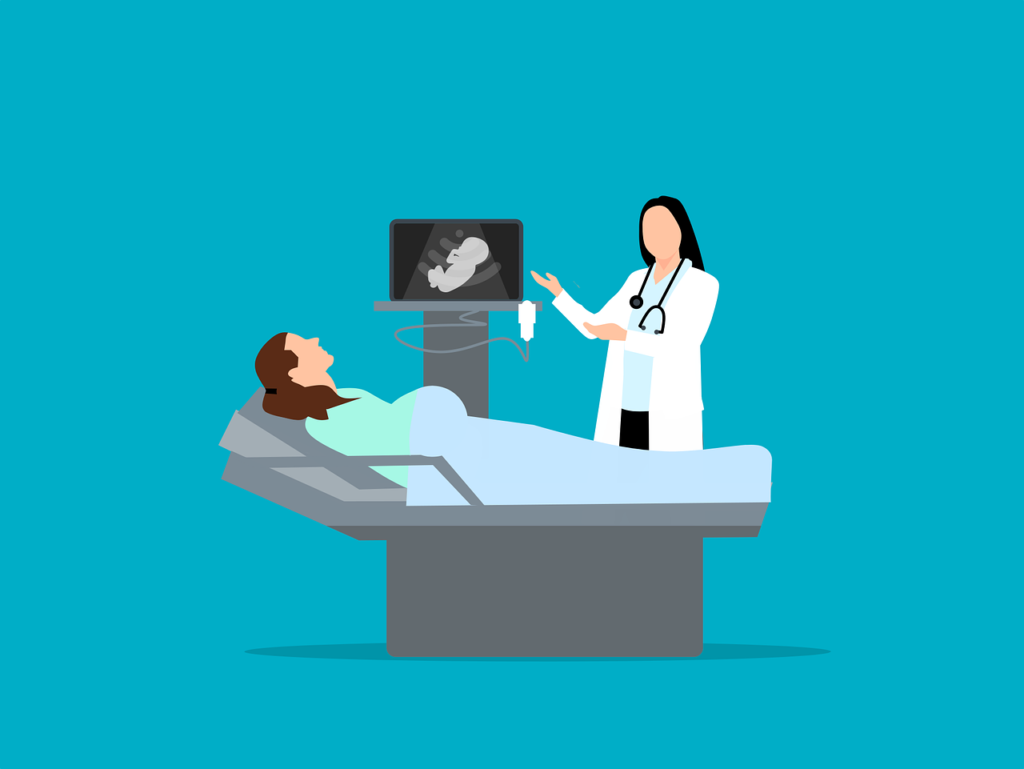Understanding Pregnancy Screening Tests
Pregnancy screening tests are crucial in monitoring the health of both mother and baby throughout pregnancy. These tests, often called antenatal checks, aim to detect any diseases or conditions early, allowing for timely intervention and management. The overarching goal is to identify potential issues before they become significant problems, thereby facilitating better health outcomes for both the mother and the baby.

The Importance of Antenatal Checks
The benefits of these screening tests are substantial. By identifying conditions such as diabetes or pre-eclampsia early, healthcare providers can initiate appropriate treatments that may mitigate potential complications. However, it is essential to weigh these benefits against any potential risks. Each test carries its own set of considerations, and it is crucial that the advantages significantly outweigh any drawbacks.
Consent and Compulsory Nature
It is important to note that pregnancy screening tests are not compulsory. Expectant mothers have the right to consent to or decline any of these tests. This aspect of antenatal care ensures that the process respects personal autonomy while still providing valuable opportunities for early detection and intervention.

What to Expect During a Pregnancy Screening Test
General History
During antenatal checks, one of the initial steps involves a comprehensive review of your general health history. This includes discussions about your overall health, family and social background, and any previous pregnancies. The purpose is to identify any issues that may require special attention, such as a history of diabetes or pre-eclampsia.
Physical Examinations
Several physical examinations are part of routine antenatal checks:
- Weight and Height: Monitoring weight and height helps in assessing whether the mother is underweight or overweight.
- Growth Assessment: Growth of the baby is monitored using tape measurements or ultrasound if there are concerns about abnormal growth patterns.
- Blood Pressure: Regular monitoring of blood pressure is essential for screening pre-eclampsia, alongside urine tests.
- Baby’s Position: Around 36 weeks, the baby’s position is checked to ensure it is not in a breech position, which can affect the birth process.

Urine Tests
Urine tests are used to detect several key conditions:
- Protein: The presence of protein can be an early sign of pre-eclampsia.
- Sugar (Glucose): This initial check helps identify potential diabetes.
- Germs (Bacteria): Screens for asymptomatic urinary infections that could lead to complications.
Blood Tests
Blood tests are comprehensive and include:
- Anaemia: Checking for iron deficiency.
- Blood Group and Rhesus Status: Determines the need for anti-D injections.
- Rubella Status: Assesses immunity to German measles.
- Haemoglobin Disorders: Identifies carriers of conditions such as sickle cell anemia or thalassaemia.
- Infections: Tests for HIV, Hepatitis B, and Syphilis.
- Diabetes: Evaluates if there is a history or risk factors for diabetes.

Ultrasound Scans
Ultrasound scans provide critical insights into the pregnancy:
- Early Pregnancy Scan: Confirms the due date, baby’s heartbeat, and number of babies.
- Fetal Anomaly Scan: Conducted around 20 weeks to check for developmental issues.
- Placenta Praevia Scan: An additional scan at 36 weeks if the placenta is covering the cervix.
Screening Tests for the Baby
Specific tests screen for genetic conditions:
- Combined Test: Conducted between 10-14 weeks to screen for Down’s syndrome, Edwards’ syndrome, and Patau’s syndrome using a blood test and ultrasound.
- Quadruple Test: Offered between 14-20 weeks if the combined test is missed; primarily screens for Down’s syndrome.
Interpreting Test Results
The results from these tests guide further actions:
- Combined Test Results: Provides risk information rather than a definitive diagnosis. Higher risk results lead to more detailed follow-up tests.
- Non-Invasive Prenatal Testing (NIPT): Offers more accurate results and helps determine the need for diagnostic tests.
- Diagnostic Tests: Amniocentesis and chorionic villus sampling (CVS) provide definitive results but come with a small risk of miscarriage (about 1 in 200).
Routine Testing and Follow-Up
Routine antenatal checks are standard, but additional tests may be recommended if complications or symptoms arise. Regular consultations with your midwife or doctor are essential to address any concerns or questions about the tests and their outcomes.
Initial Visit and Follow-Up
At your first visit:
- Initial Blood Tests: Includes checking for anaemia, blood group, Rubella immunity, and screening for infections.
- Ultrasound: Confirms pregnancy duration and number of babies.
- Urine Sample: Screens for unrecognised urinary tract infections.
Early and Mid-Pregnancy Screening
- First Trimester Screening: Includes a blood test and ultrasound between 10-13 weeks.
- Second Trimester Screening (MSST): For those who missed the first trimester test, conducted between 14-19 weeks.
- Non-Invasive Prenatal Testing (NIPT): A blood test for genetic conditions, though not covered by Medicare.

Key Scans and Tests
- 18-20 Weeks Morphology Ultrasound: Evaluates baby’s growth, amniotic fluid, and placenta position.
- 26-28 Weeks Blood Test: Checks for anemia, red cell antibodies, and gestational diabetes.
- 36 Weeks Group B Streptococcus Test: A vaginal swab to detect Group B Strep bacteria, with options for self-testing or assistance.
Routine Checks
- Blood Pressure and Urine Tests: These are conducted at each appointment to monitor health and detect potential issues.
- Measuring Baby’s Growth: Begins at 24 weeks to track development, with follow-up if measurements are abnormal.
- Abdominal Palpation: Around 36 weeks to check the baby’s position and plan for labor.
Additional Notes
If you experience any symptoms or have concerns during pregnancy, do not hesitate to contact your midwife or doctor. Regular antenatal checks are a vital part of ensuring a healthy pregnancy and addressing any issues promptly.

